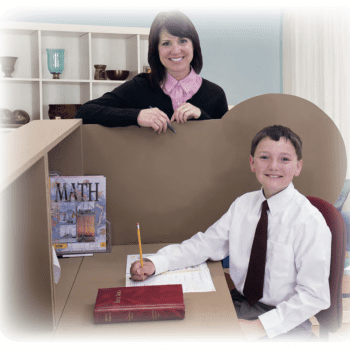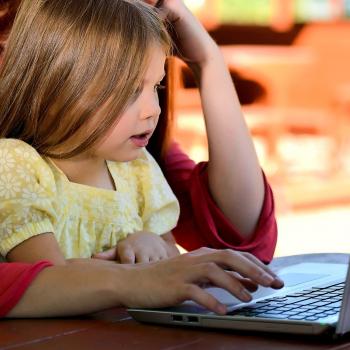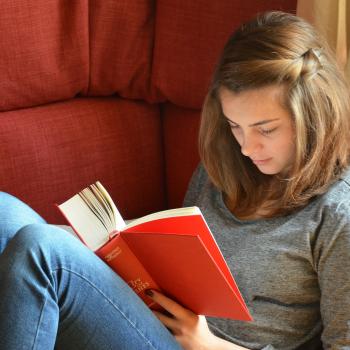This is probably the most common question homeschoolers get. As a child, I was well schooled in how to reply to it. “Do you have any idea how many friends I have?” “Segregating children by age group is not a natural form of socialization.” “Socialization is just a code word for peer pressure.”
Today, I read blogs and articles by homeschoolers using these same arguments and insisting that socialization is no problem at all, and I want to scream. More than that, I want to bang my head against the wall.
You see, socialization matters. It is not a bogeyman or a silly question. It is important. And, it is an issue about which I am very passionate.
I arrived at college after being homeschooled through high school. I had had plenty of friends across a variety of age groups. I had been in homeschool co-ops and clubs, including a speech club. I had gone to political events and had spoken with reporters. I was articulate, well spoken, and outgoing. I thought I was socialized. I wasn’t.
The truth is, my first year of college was extremely painful. I had no idea how to interact with people who were different from me. I had no idea how to take criticism. I had no idea how to interact with those around me. I had no idea how to handle myself around large groups of people, or how to act in the ordinary social situations that come up at a large school. I had no idea how to handle someone not liking me. I had no idea how to function in a diverse society. I was incredibly awkward and felt extremely lost, and I cried more than you want to know.
You see, socialization is not about being able to carry on a sentence. Socialization isn’t about being able to make a friend. Socialization is about interacting with people who are different from you. It’s about learning how to deal with the bully or the “mean girl.” It’s about learning how to handle having people not like you. It’s about feeling put down by cliques, but learning to deal with it and surviving. It’s about growing a tough skin. It’s about handling playground politics. It’s about being friends with people who disagree with you.
There is a second issue here too. Homeschooling made me into a cultural misfit. The things the girls I met in college talked about, I didn’t understand. The things they were excited about, I was ignorant of. I experienced – and still experience – a huge cultural disconnection. I’m not saying I wanted to conform or just be a clone of the girls I met in college, but I would have at least liked to understand what made them tick and to have been able to communicate with them on this level. As it was, I couldn’t. I didn’t understand their culture, I had no common experiences with them, I had no basis for communication or identification. I was an outsider looking in.
Wikipedia defines socialization as follows:
Socialization is a term used by sociologists, social psychologists, anthropologists, political scientists and educationalists to refer to the process of inheriting and disseminating norms, customs and ideologies. It may provide the individual with the skills and habits necessary for participating within their own society; a society develops a culture through a plurality of shared norms, customs, values, traditions, social roles, symbols and languages. Socialization is thus ‘the means by which social and cultural continuity are attained’.
You see, socialization has nothing to do with whether you can make friends or hold a conversation. Socialization is about cultural understanding and cultural knowledge. It’s about having shared experiences and a shared system of symbols and languages. It’s about having things in common with those around you. It’s about a common culture. This is why public schools play such an important role in the socialization of our nation’s young. Public schools pass on our common traditions and disseminate our common culture.
In my experience, homeschoolers who laugh at the socialization question don’t have any idea what socialization actually is. They don’t understand the question, and they therefore bungle their answer. And every time I read another homeschool blog or website laughing off the socialization question, I want to bang my head against a wall.
Now, there are some who would say that, as such, socialization is a bad thing. They would argue that socialization is designed to turn children into robots. The problem with this argument is that socialization is not so much about conformity as about shared meaning and common knowledge. A person doesn’t have to accept every cultural value or live the way culture expects in order to be socialized. Instead, a well socialized individual simply needs to understand these things. Having a common culture and common experiences and traditions doesn’t erase our differences, it holds us together as a nation despite our differences.
Similarly, there are those who would argue that segregating children by age is not a good way to socialize. These individuals generally point out that public schools are a recent phenomenon and that children used to be socialized in their families and home communities. But this misses the point. Public schools may be a recent phenomenon, but they are still our reality. I understand that many people wish they could return to the past in some aspect or another, but the reality is that we have to live in and work within the present. Proclaiming that children used to be socialized differently is not going to change the fact that this is how children are socialized today. Wishing for the past does not erase the present.
Interestingly, the people I met in college were not the mindless conformers I had been taught to expect coming out of public schools, not in the least. Rather, they were intelligent, confident, and independent. The made a lie of my parents’ claims that public schools are factories that turn children into robots. It’s simply not true. Public schools don’t rob children of their individuality or dumb them down. Socialization isn’t about enforced conformity or pushing children into molds or turning out robots. Indeed, the friends I made in college, every one of them public schooled, were – and continue to be – inspirations to me. They knew how to handle themselves and they understood how to interact with those around them. The were confident and comfortable, and I envied them.
I sometimes wonder if one reason so many homeschool parents cannot seem to understand the real meaning of the socialization question is that, having been socialized themselves, they cannot imagine what it would be like to not be. They don’t understand what it feels like to be a foreigner in your own country. They don’t understand what it feels like to not be able to fit in. They don’t understand what it’s like to be robbed of the ability to be normal because they have the ability to be normal. Parents who homeschool may choose to be different, but their children have no such choice.
Those who are homeschooling for other reasons other than “sheltering” their children don’t get a free pass here. While their children will likely have an easier time adjusting than I did, they will still almost certainly face many of the same problems. The socialization issue is not specific to homeschoolers who shelter their children, but is, rather, common to all homeschoolers. These other homeschoolers, like their more sheltered counterparts, will also not have to learn to handle playground politics and will certainly not have the common experiences of pep rallies or bad social studies teachers. There is some element of dealing with other people that they will miss and a piece of our common culture they will not experience. And while homeschool parents may not see these things as important, their children, like me, may disagree.
Am I arguing that no one should ever homeschool? Not necessarily. I don’t know every situation, and every family is different. I would not presume to speak for every family. What I am arguing is that parents who homeschool need to take the socialization question seriously rather than laughing it off. They need to be aware of the potential socialization problems their children may face and take steps to mitigate them. Most of all, homeschool parents need to understand what socialization is and why it is important, and they need to be fully aware of what they are doing when they remove their children from the public schools.
Socialization is actually the #1 reason I will be putting my daughter in public school when she turns five. Honest.
Note: If you are a homeschooler and you dislike what you have read here, please don’t get all defensive. I am not trying to judge, simply to share my experiences. I was homeschooled. I have been there. I was not isolated or kept in a closet, I had plenty of friends and was involved in plenty of co-ops, but I was nevertheless not socialized, and I regret that. The fact is, socialization does matter. Rather than getting upset and defensive, please just take my perspective and opinion for what it is.














